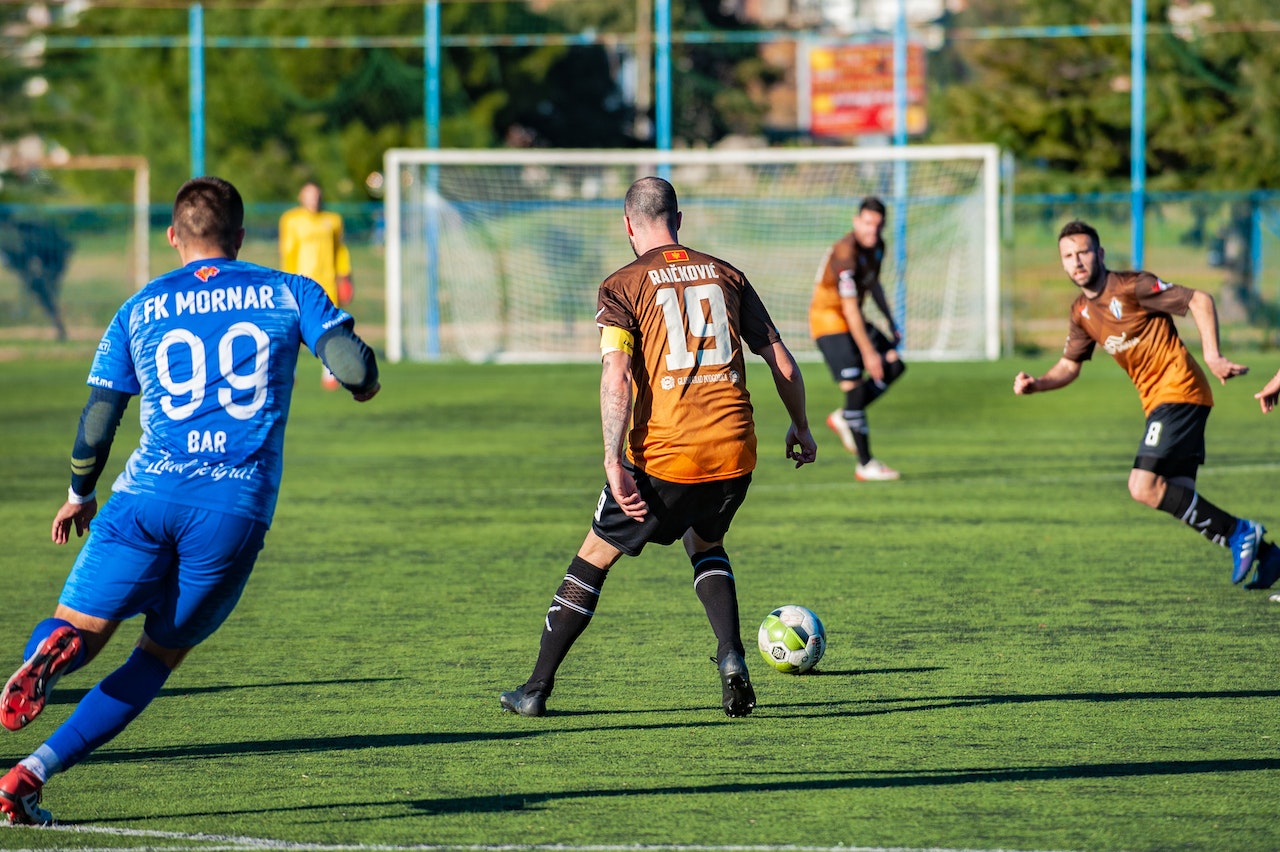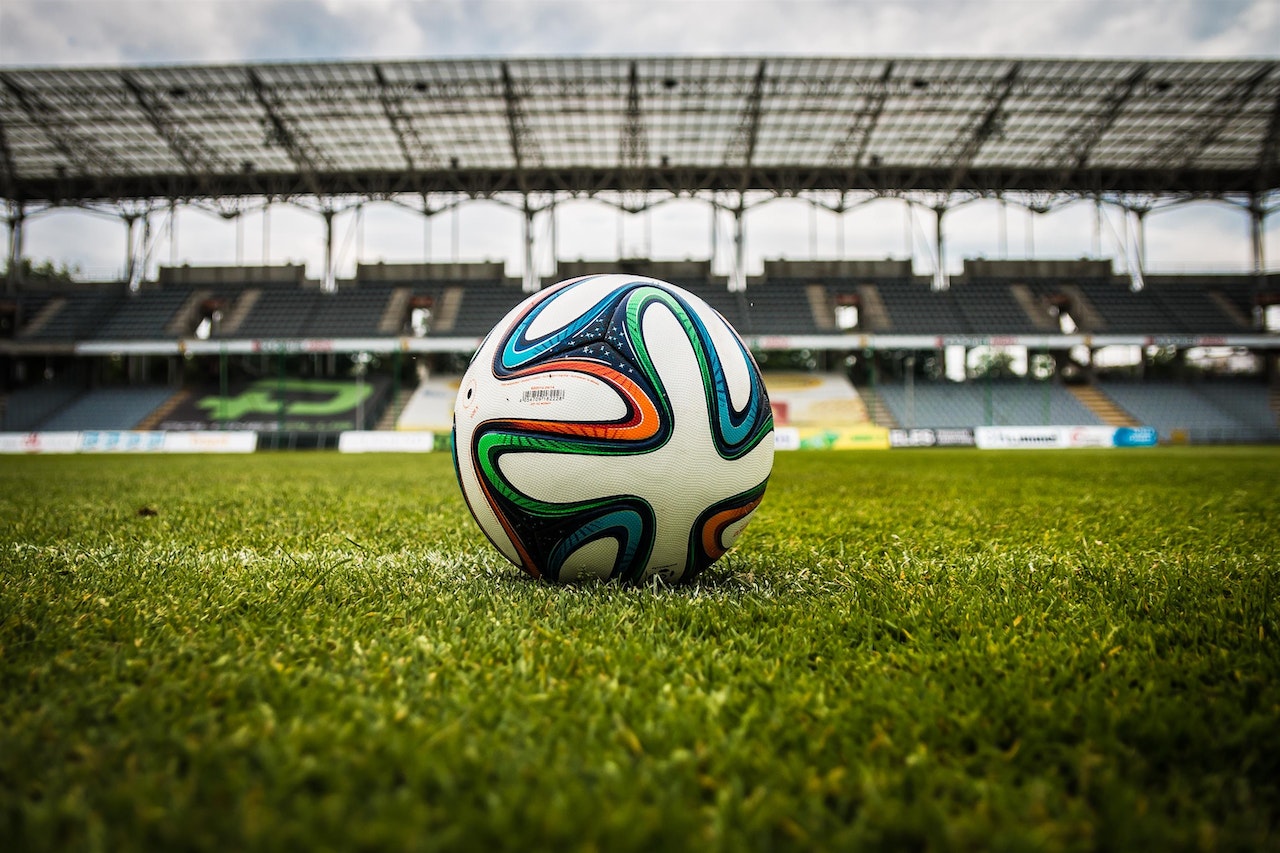3 Reasons Why Do Soccer Players Act So Dramatic
This is a topic of debate among fans and analysts who wonder, "why are soccer players so dramatic?" Some attribute it to a lack of sportsmanship, while others argue that the pressure to perform at the highest level can cause players to react emotionally.
Author:David MitchellReviewer:Daniel ClarkMay 22, 202340 Shares640 Views

Soccer playersare known for their dramatic actions on the field. From exaggerated falls to overreacting to minor fouls, it can be frustrating for fans and opposing teams alike. While some playersdo it to gain an advantage or deceive the referee, others do it as a natural reaction to the physicality of the game.
This is a topic of debate among fans and analysts who wonder, "why are soccer players so dramatic?" Some attribute it to a lack of sportsmanship, while others argue that the pressure to perform at the highest level can cause players to react emotionally.
3 Reasons Why Do Soccer Players Act So Dramatic
Soccer playersact dramatically on the field for several reasons, including gaining an advantage, deceiving the referee, and protecting themselves from further injury. One of the primary reasons for overreacting to fouls is to draw attention to the foul and convince the referee to award them a free-kick or penalty. Players hope to make the referee believe that the foul was more severe than it actually was, increasing their chances of getting a favorable call.
Another reason for overreacting is to deceive the referee into thinking that a foul occurred when it did not. This type of overreacting is known as simulation or diving, and it is often done to draw a foul in a strategic location, such as the penalty box. By simulating a foul, players hope to trick the referee into awarding them a free-kick or penalty.
Finally, overreacting can be a natural reaction to the physicality of the game. Socceris a sportthat involves a lot of contact, and players may overreact to fouls as a way to protect themselves from further injury. While this type of overreacting may not be intentional, it can still be frustrating for fans and opposing teams alike.
Why Do Players Need To Overreact?
One of the primary reasons soccer playersoverreact to fouls is to draw attention to the foul and convince the referee to award them a free-kick or penalty.
The game of soccermoves quickly, and the referees have a split second to make a decision. By overreacting, players hope to make the referee believe that the foul was more severe than it actually was, increasing their chances of getting a favorable call.
Another reason for overreacting is to protect themselves from further injury. While soccer is a physical sport, players are not allowed to intentionally harm their opponents. By overreacting to a foul, players hope to discourage their opponents from making any further dangerous tackles.
What Are The Benefits Of Overreacting?
Overreacting can have several benefits for soccer players. The most obvious benefit is that it can result in a favorable call from the referee. By drawing attention to the foul, players hope to convince the referee to award them a free-kick or penalty. This can be a significant advantage, as free-kicks and penalties can often lead to goals.
Another benefit of overreacting is that it can disrupt the flow of the game. When a player overreacts to a foul, the opposing team may become frustrated or angry, leading to a loss of focus and momentum. This can be advantageous for the overreacting player's team, as it can give them an opportunity to regroup and take control of the game.
What Are Disadvantages Of Foul Simulation?
While overreacting to a foul can have benefits, it also has several disadvantages. The most significant disadvantage is that it can damage the integrity of the game. Soccer is a sport that values honesty and fair play, and overreacting to fouls can undermine these values.
Another disadvantage of overreacting is that it can result in disciplinary action from the referee. If a player is caught overreacting or simulating a foul, they may be cautioned or even sent off, which can be detrimental to their team's chances of winning.
When And Where Do Players Flop?
Players tend to flop or overreact to fouls in specific situations. One of the most common situations is when a player is in or near the penalty area. As penalties can often lead to goals, players may be more likely to overreact in this area to try and convince the referee to award them a penalty kick.
Players may also be more likely to flop when they are losing or when the game is close. In these situations, players may feel pressure to win or avoid losing, and overreacting to fouls can be seen as a way to gain an advantage.
Is Flopping Bad For The Game?
Flopping or overreacting to fouls can be detrimental to the game of soccer. It can damage the sport's integrity, as it goes against the principles of fair play and honesty. It can also be frustrating for fans and other players, who may feel like they are being cheated.
However, flopping is not a new phenomenon, and it has been a part of soccer for decades. While it is not desirable, it is a part of the game, and it is up to the leagues and officials to take action to reduce its occurrence.
How Can Leagues Reduce Flopping?
There are several steps that leagues can take to reduce flopping or overreacting to fouls. One of the most effective methods is to increase the penalties for simulation. If players know that they will face harsh disciplinary action for overreacting, they may be less likely to do it.
Another way to reduce flopping is to use video technology to review controversial incidents. By reviewing the footage, officials can make more accurate decisions and reduce the likelihood of players overreacting to fouls.
Finally, leagues can take steps to encourage fair play and sportsmanship. By promoting these values, players may be less likely to overreact to fouls, as they will understand the importance of playing with integrity.
The Connection Between Performance Pressure And Flopping
Performancepressure can have a significant impact on the occurrence of flopping in soccer. When players are under pressure to perform, they may be more likely to overreact to fouls as a way to gain an advantage or protect themselves from further injury.
For example, in high-stakes games, such as championship matches or important rivalries, players may feel more pressure to win. This pressure can lead to more aggressive play and a higher likelihood of fouls. In turn, players may be more likely to overreact to these fouls as a way to gain an advantage.
Additionally, performance pressure can affect individual players differently depending on their personality and playing style. Players who are more anxious or prone to perfectionism may be more likely to overreact to fouls as a way to gain control over the situation. On the other hand, players who are more confident or relaxed may be less likely to overreact.
How Different Positions In Soccer Are Affected By Flopping
Different positions in soccer are affected by flopping in different ways. For example, forwards and attacking players may be more likely to overreact to fouls as a way to draw a free-kick or penalty in a strategic location, such as the penalty box. These free-kicks and penalties can often lead to goals, giving the attacking team a significant advantage.
Defensive players, on the other hand, may be more likely to overreact to fouls as a way to protect themselves from further injury. As defensive players often have to make physical challenges, they may be more susceptible to fouls and, in turn, overreacting.
Midfielders, who often play a transitional role between offense and defense, may be affected by flopping in a variety of ways. They may overreact to fouls as a way to gain an advantage or protect themselves, or they may use overreacting as a way to disrupt the flow of the game and regain control of the ball.
People Also Ask
How Can Fans Make A Difference In Reducing Flopping?
By speaking out against flopping and promoting fair play, fans can put pressure on players and leagues to reduce its occurrence.
Are There Any Benefits To Allowing Flopping In Soccer?
No, flopping goes against the principles of fair play and can damage the integrity of the game.
Can Overreacting To Fouls Lead To Injuries?
Yes, if a player overreacts and falls awkwardly, they may be at risk of injuring themselves or other players.
Are There Any Psychological Factors That Contribute To Overreacting In Soccer?
Yes, performance pressure, anxiety, and personality traits can all play a role in overreacting to fouls.
How Can Coaches And Trainers Help Reduce Flopping Among Their Players?
By promoting fair play, emphasizing the importance of honesty, and providing mental and emotional support to players, coaches and trainers can help reduce the occurrence of flopping on the field.
Conclusion
There are several reasons why are soccer playersso dramatic, including trying to draw attention to fouls, protecting themselves from injury, and gaining an advantage. While overreacting can have benefits, it can also damage the integrity of the game and result in disciplinary action.
Players tend to flop in specific situations, such as in the penalty area or when the game is close. Leagues can take steps to reduce flopping, such as increasing penalties for simulation, using video technology, and promoting fair play and sportsmanship.
The issue of overreacting to fouls is one that will likely continue to be a part of the game of soccer. However, by taking proactive steps, leagues and officials can reduce its occurrence and promote a more fair and honest game.
Jump to
3 Reasons Why Do Soccer Players Act So Dramatic
Why Do Players Need To Overreact?
What Are The Benefits Of Overreacting?
What Are Disadvantages Of Foul Simulation?
When And Where Do Players Flop?
Is Flopping Bad For The Game?
How Can Leagues Reduce Flopping?
The Connection Between Performance Pressure And Flopping
How Different Positions In Soccer Are Affected By Flopping
People Also Ask
Conclusion

David Mitchell
Author
David Mitchell is a versatile writer at Tennessee Independent, specializing in news, sports, and player profiles. With a keen eye for detail and a passion for storytelling, David brings a unique perspective to his articles, covering a wide range of topics that resonate with readers. His expertise in these areas ensures that readers receive insightful and engaging content, making him a valuable asset to the Tennessee Independent team.

Daniel Clark
Reviewer
Daniel Clark is an experienced author at Tennessee Independent, renowned for delivering insightful articles with a professional approach. With a focus on factual accuracy and authoritative insights, Daniel covers a wide range of topics, providing valuable information and engaging narratives. His expertise in areas such as performance, player profiles, and current events ensures that readers receive trustworthy and informative content. Daniel's commitment to delivering well-researched articles makes him a reliable source for expert perspectives on Tennessee Independent.
Latest Articles
Popular Articles
